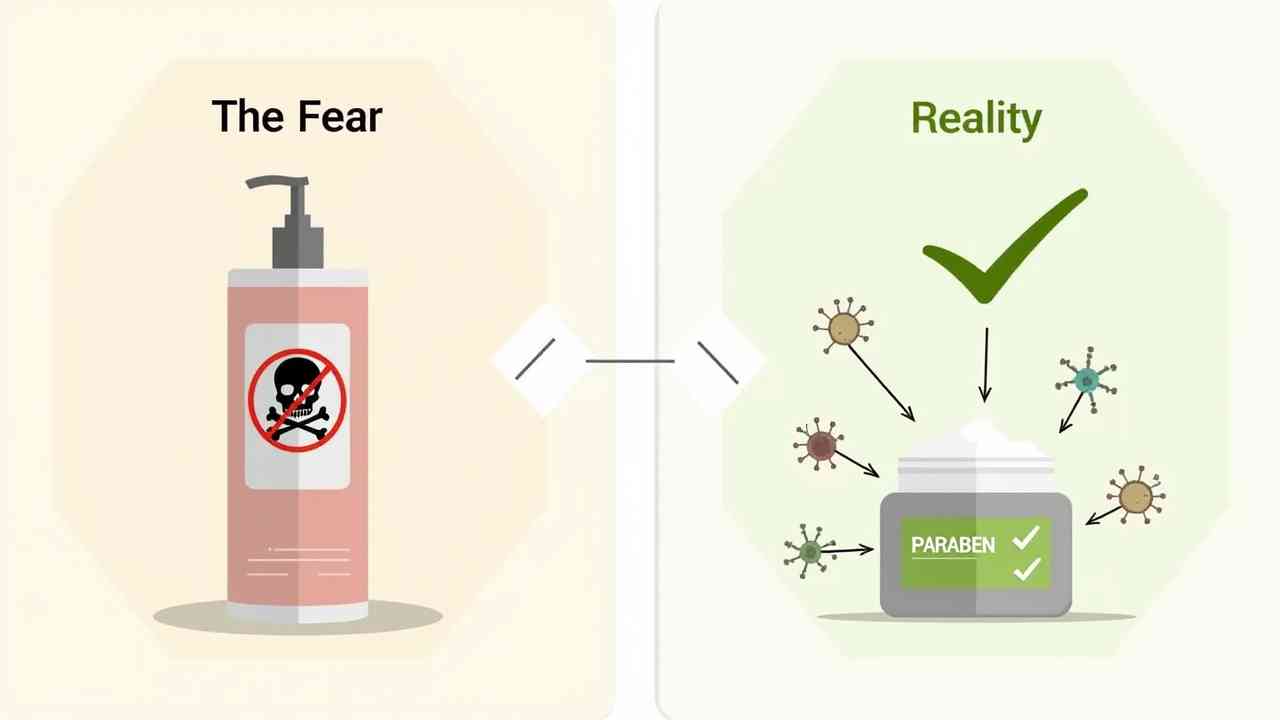
🧪 Are Parabens Bad for Your Skin? A Dermatologist's Guide to the Science
🧪 A Dermatologist's Guide: Are Parabens Really Bad for Your Skin? 🧪
Walk down any beauty aisle, and you will see the phrase everywhere: "paraben-free." This has become one of the biggest marketing claims in the beauty industry. It has led many to believe that parabens are a dangerous and toxic ingredient that must be avoided at all costs. But are parabens bad for your skin?
The answer, according to most dermatologists and regulatory bodies, is much more complex than a simple yes or no. The fear surrounding parabens is largely based on a misunderstanding of the science. It is a classic case of an ingredient's reputation being damaged by controversy.
This guide will explain what parabens are, why they are used, and what the scientific consensus really is. Let's separate the facts from the fear. ✅
🤔 First, What Are Parabens and Why Are They in Your Products?
Parabens are a class of chemical preservatives. They have been used for decades in cosmetics, food, and pharmaceutical products. You will see them on ingredient lists with names like methylparaben, propylparaben, and butylparaben.
Their one and only job is to keep your products safe. They are incredibly effective at preventing the growth of harmful bacteria, mold, and yeast. Without a preservative like parabens, your favorite cream or lotion would become a contaminated mess within days or weeks. They are essential for product safety and longevity.
- Why is There So Much Controversy?
The controversy began with a 2004 study. This study detected parabens in some breast cancer tumor samples. This led to widespread media reports linking parabens to cancer. However, this is a misinterpretation of the findings.
The study did not prove that parabens cause cancer. It only showed that they were present in the tissue. It did not show where they came from or if they had any effect on the cancer's growth. The other main concern is that parabens can weakly mimic the hormone estrogen. This has led to fears that they are "endocrine disruptors."
- What Do Major Health Organizations Say?
This is the most important part of the conversation. Major regulatory bodies around the world, including the FDA in the United States and the European Commission's Scientific Committee on Consumer Safety, have extensively reviewed the evidence. Their conclusion is clear.
They have consistently stated that parabens, at the very low concentrations used in cosmetic products, are safe to use. The estrogenic effect of parabens is extremely weak—thousands of times weaker than the body's own natural estrogen. There is no credible scientific evidence to suggest that the parabens in your skincare are causing any harm to your health.
- Are There Any Real Risks for the Skin?
When it comes to the question, "are parabens bad for your skin," the direct effects are minimal. Parabens are generally very well-tolerated. It is possible, but very rare, for someone to have a true contact allergy to parabens, which would result in a red, itchy rash.
Ironically, the shift to "paraben-free" products has led to the use of newer, alternative preservatives. Some of these are more likely to cause allergic reactions than the parabens they replaced.
⭐ What's the Bottom Line?
The scientific consensus is that parabens are safe and effective preservatives. The "paraben-free" movement is largely driven by marketing and consumer fear, not by strong scientific evidence. For the vast majority of people, they are not a cause for concern. As the weather changes here in Bursa for the autumn, you can be confident in the safety of your preserved products. 🍂